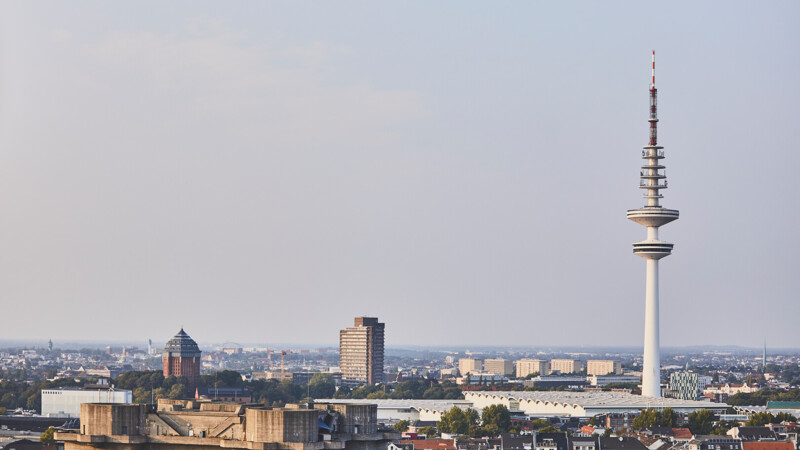More than one million different algae species exist worldwide. "Around 30,000 to 40,000 species have been proven of which only 100 species are used commercially," said Dr Nils Wieczorek, research associate and group leader of "Bioeconomy and Bioresources" at the Hamburg University of Technology (TUHH). Thus plenty of research remains to be done into the aquatic plants, which are considered alternative protein or energy suppliers. Together with Leonard Francke and Sarah Löhn, the engineer has been running an algae cultivation facility in the Ziegelwiesenkanal, in Harburg’s inland harbour since May. Funded by the Foundation for Innovation in Higher Education, the research is part of the joint Open T-Shape for Sustainable Development project.
Microalgae full of vitamins, antioxidants and unsaturated fatty acids
The tube-shaped algae reactor in which the algae thrive is at the heart of the 39 sqm plant with a production volume of 160 litres. "Macroalgae are found on the beach and resemble plants. Microalgae are microscopically small algae that are invisible to the naked eye," said Francke. The tiny algae found in Harburg are brimful of vitamins, antioxidants, unsaturated fatty acids as well as other micronutrients and are suitable,.e.g., as a source of feed or dye.
The scientists first analysed the natural algae occurrence in the Ziegelwiesenkanal and selected the most promising candidates. "These are the ones that tolerate both heat and cold peaks best and are particularly well suited for protein or dye production." The team works exclusively with what nature produces in the canal. "We do not make any biotechnological changes, and given the diversity of algae, that's not necessary," Francke stressed.
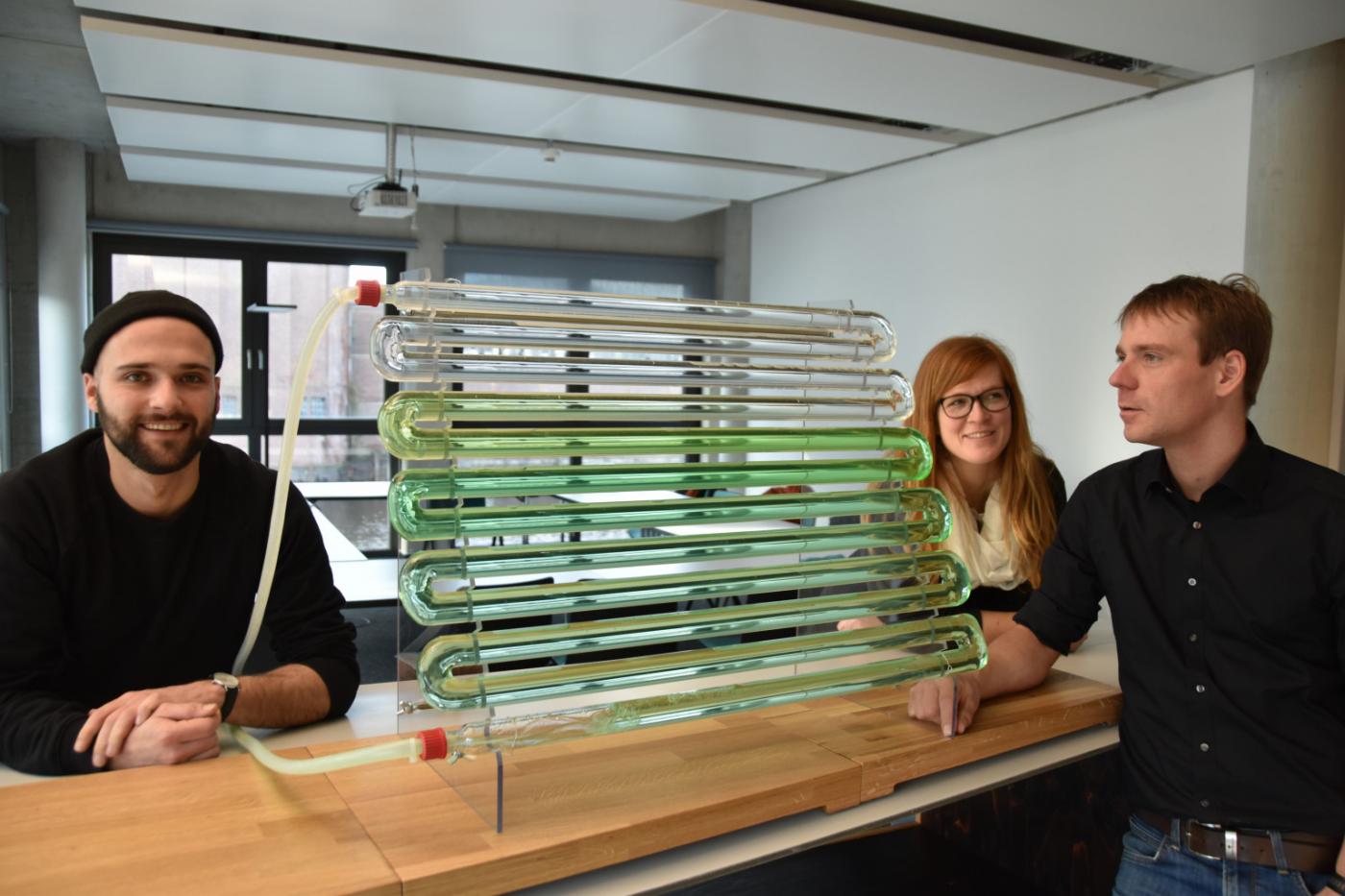
Next industrial-scale algae reactor?
Wieczorek, Francke and Löhn run their pilot plant with a view to a follow-up plant on an industrial scale. "But first we have to see whether it is viable for industrial use," said Francke. Yet, the initial results are promising. "Our algae have a relatively high protein content of 35 per cent and a good fat content of 2 per cent, and they have also proven resilient." This could make them interesting both as a source of energy and food. The team is keen to make the plant in Harburg accessible to the public. "We are planning QR codes to make information and videos available, but the facility has already become something of a crowd-puller," Wieczorek noted. Too many research results remain locked up in an ivory tower forever. Yet, algae cultivation allows for very practical knowledge transfer. And that is important, if algae cultivation is to develop as promisingly as hoped.
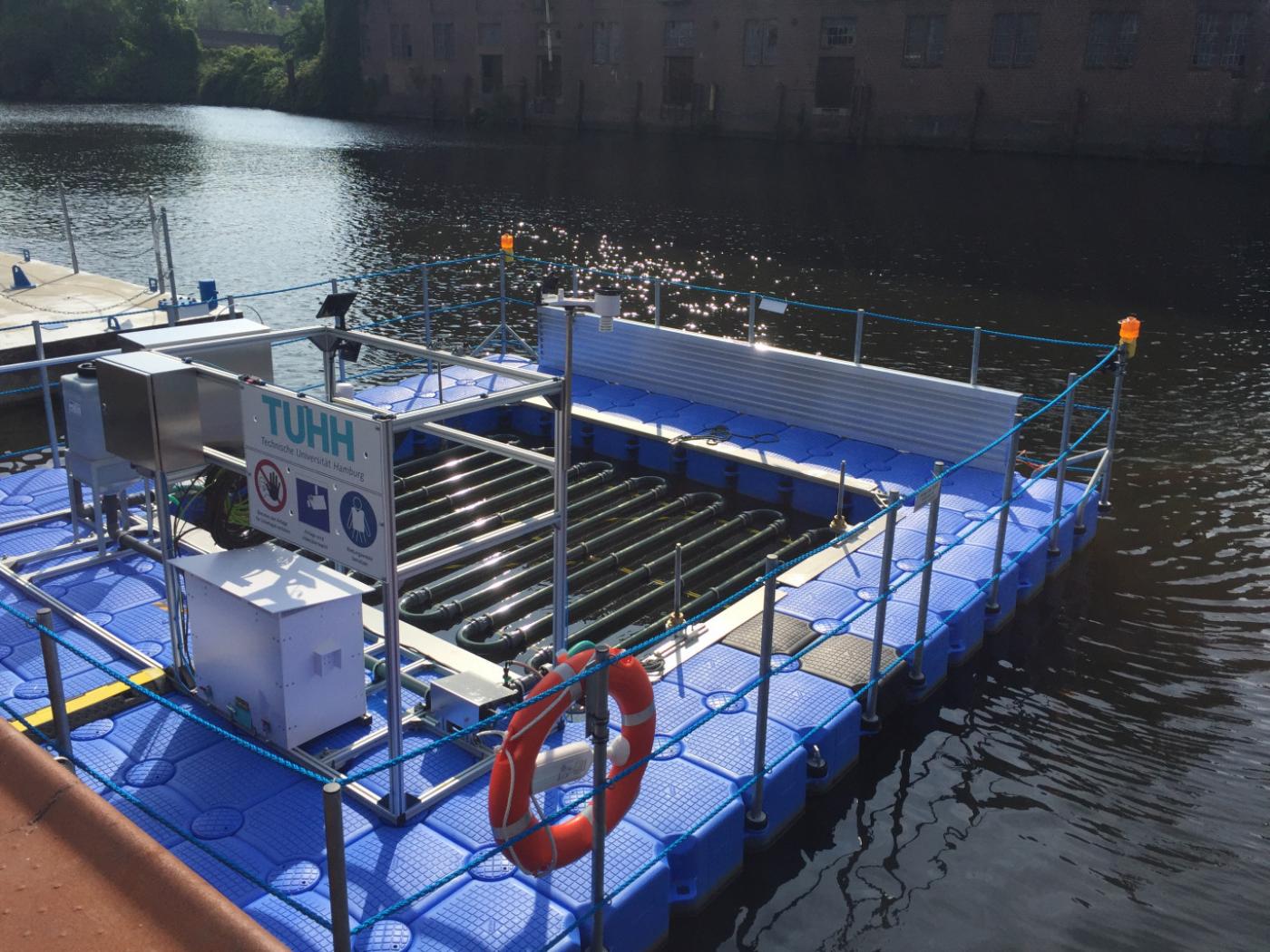
Huge potential for feeding the world
Apart from many possible applications, everything points towards algae cultivation. "Plants can be built on fallow land or on the many canals in our city. In this way, new urban agricultural areas can be created to complement existing agriculture," Francke pointed out. However, the algae products would be mostly food supplement, but not substitutes....at least not yet. "Urban algae will not be able to saturate a mass market in the near future," Francke believes. But the whole team is fully convinced that algae hold huge potential for feeding the world in the medium to long term.
ys/pb
Sources and further information
More
Similar articles
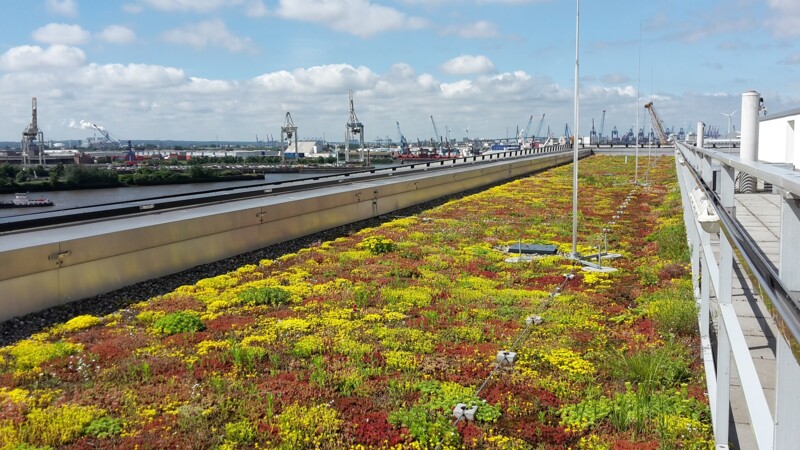
Hamburg strengthening its resilience to climate change
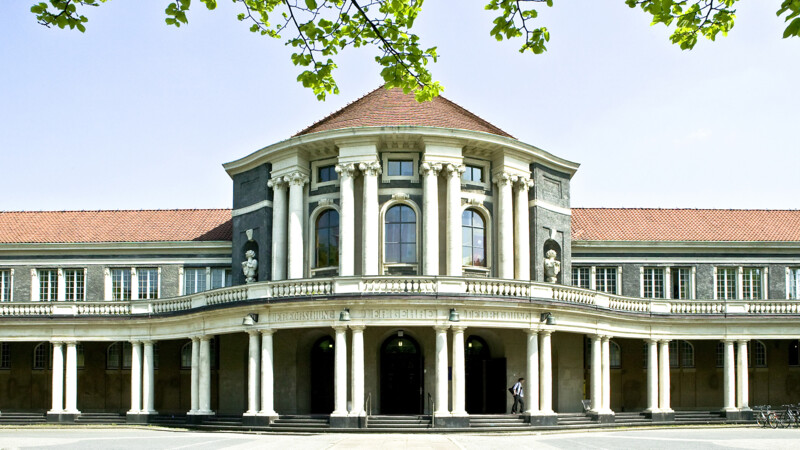
University boosts transfer of innovation in Hamburg
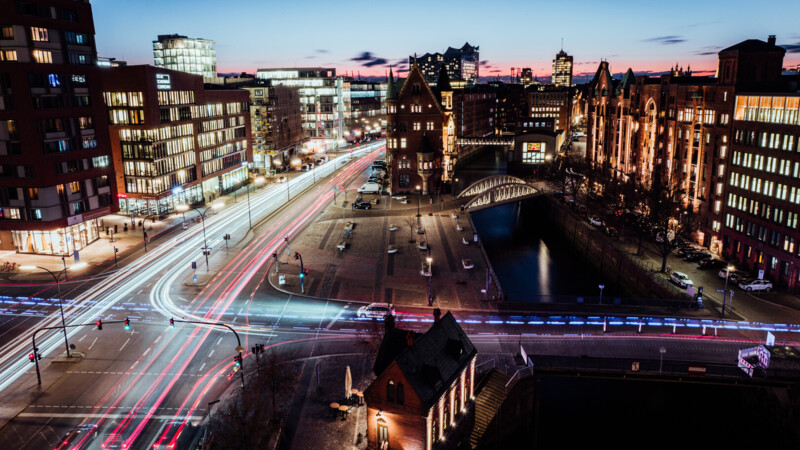
From spin-off to company - transferring from research to praxis
